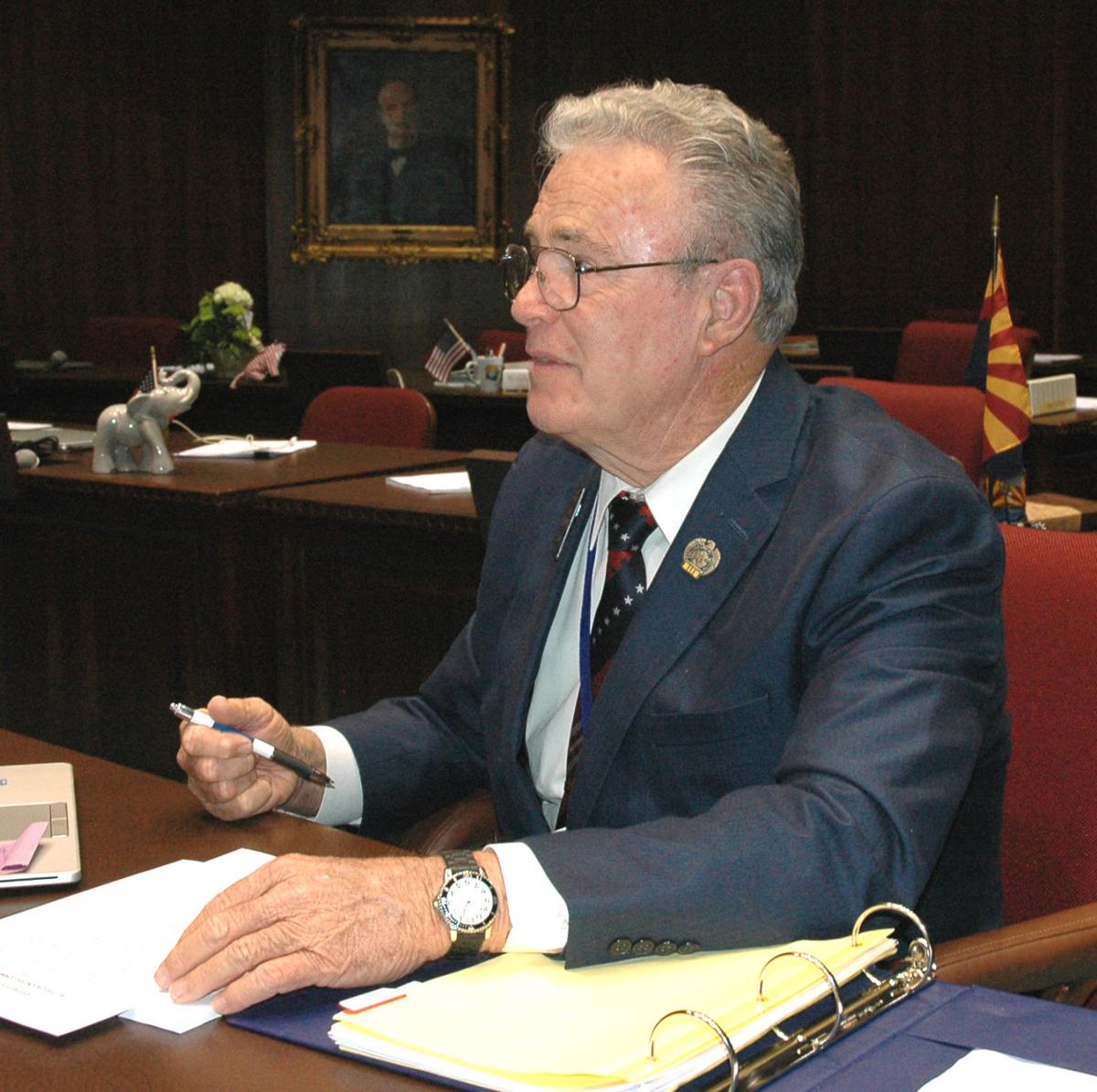PHOENIX — The new head of the House Committee on Transportation and Infrastructure wants a dime-a-gallon increase in the state gasoline tax.
But he’s not sure voters are willing to go along.
Rep. Noel Campbell, R-Prescott, pointed out that the last time Arizona hiked its gas tax was in 1991. Since then it has remained at 18 cents a gallon.
“And a dollar of tax revenue then is worth about 47 cents today,” he said. “So we’re not even collecting enough tax to maintain our roads.”
So Campbell figures it’s time to revisit the issue.
He has no illusion his colleagues would approve such a sharp hike in gasoline taxes. And it’s not just a matter of politics: It takes a two-thirds vote of the House and Senate to hike tax rates.
But Campbell needs just a simple majority to put the issue on the 2018 ballot. And he figures he’d better start selling the issue now to get even that margin.
“The question is, do we have enough willpower to tax ourselves a reasonable amount — reasonable — to help us with our road conditions,” he said.
It’s not just a question of a flat tax rate.
Campbell noted there are an increasing number of vehicles on the road that use no gasoline or diesel fuel. And all vehicles are getting much better gas mileage.
Consider: The Arizona Department of Transportation reports that in 2005 motorists logged more than 163 million miles a day on Arizona roads. A decade later, it topped 178 million miles. Yet the amount of gasoline sold in 2015 is virtually identical to what it was in 2005.
“We have got to get revenue into our transportation system to start dealing with these highway needs that we have,” Campbell said.
And there are a lot.
In a report released last month, a special task force set up by the Legislature pegged Arizona’s near-term funding needs at $20 billion. And that’s just for building, widening and maintaining freeways. An additional $40 billion is needed for other road projects.
Meanwhile, ADOT predicts the Highway User Revenue Fund will add just $1.4 billion this year. And that includes not only fuel taxes but also vehicle license fees and registration charges.
Hiking the gas tax by a dime could bring in an additional $285 million.
But Campbell has another idea he is crafting beyond the gas-tax hike in HCR 2011: a $30 annual fee that motorists would pay every time they buy vehicle insurance.
At the very least, he said, that could raise about $115 million a year. It would eliminate what has become a practice of funding the Department of Public Safety by raiding HURF dollars that would otherwise be spent on road construction and maintenance.
Gov. Doug Ducey proposes just such a shift from HURF to balance this coming year’s budget.
And it would do something else. Campbell figures it would impose at least some financial burden for using state roads on all vehicles, regardless of how much — or how little — gasoline they use.
But in proposing to take the issue to the statewide ballot, Campbell faces a different hurdle.
Residents of Maricopa and Pima counties already have voted to hike sales taxes to take care of their own road-construction needs. That raises the question of whether urban voters, who make up three-fourths of voters in the state, would see any advantage in hiking gasoline taxes, too.
“I don’t really have an answer for you politically,” Campbell said. But he said he at least needs to start the discussion.
Campbell also expressed some frustration at having to fight this battle without help from the state’s top elected official.
“The governor has got to show leadership here,” he complained.
But Campbell should not count on any backing from Ducey in his quest. Gubernatorial press aide Daniel Scarpinato said his boss remains opposed to any new or increased taxes in any form.





